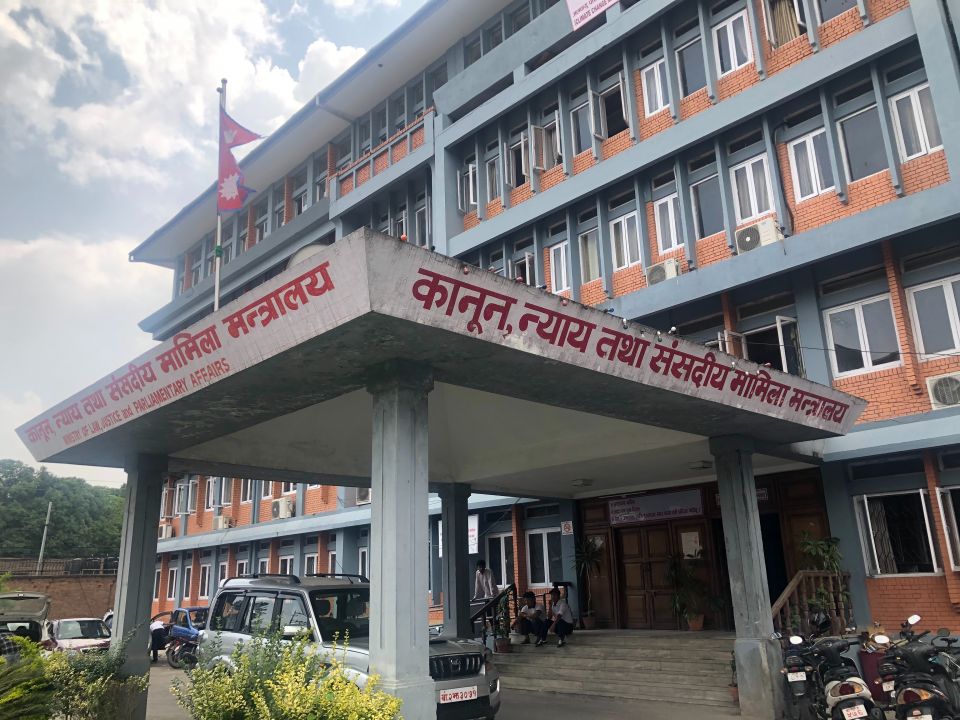
KATHMANDU, Feb 16: The government is reluctant to release Resham Chaudhary, the founding chairman of Nagarik Unmukti Party (NUP) who is allegedly the mastermind behind the Tikapur carnage.
The attempts to release Chaudhary have failed after the Ministry of Law hesitated to amend Section 116 of the Criminal Code 2074 BS.
The amendment should be done by parliament and the House session is going on, but the Ministry of Law has not forwarded the amendment proposal yet.
Although the political parties had agreed to amend the law, the tide changed with the appointment of Dhruba Bahadur Pradhan as the law minister from the Rastriya Prajatantra Party (RPP).
“The security agency has put great pressure on Pradhan, who is also a former IGP, not to amend the law. He has not been able to convince the security agency,” said a ministry official.
Section 116 of the Criminal Code 2074 BS should be amended to release Chaudhary, who is currently an advisor to NUP. In Section 116 of the Civil Code Act, there is a provision that cases such as "death by inhumane manner or under control" cannot be withdrawn. Due to this legal provision in 116 (2) of the Act, the government has not been able to withdraw the cases against Chaudhary as well as other leaders of his party and the leaders and activists of the Maoist party led by Netra Bikram Chand.
NUP, on the other hand, has set a precondition for supporting the government saying that Chaudhary's case should be withdrawn first. However, the party’s decision to not give a vote of confidence to the government of Sudur Paschim Province indicates that the NUP has parted its ways with the ruling alliance. As a result, despite daily discussions within the ruling coalition on how to release the party's adviser Chaudhary, no resolution has been reached.
"There is pressure on the minister from both sides. The security agencies are on the side that no one should be pardoned in the Tikapur incident, which is why the proposal to amend the law has not moved forward," said the official of the ministry.
Earlier, the then government led by Nepali Congress President Sher Bahadur Deuba had courted controversy for making attempts to release Chaudhary and other criminals by introducing an ordinance to this effect. However, due to massive opposition to the ordinance from all sides, the president did not authenticate the ordinance and Chaudhary could not be released.
On August 24, 2015, there was a clash between pro-Tharuhat protesters and the police in Kailali's Tikapur Municipality leading to the death of eight people, including the then Seti Zonal Chief Senior Superintendent of Police (SSP) Laxman Neupane, five Nepal Police personnel, two APF personnel and a child. Chaudhary was accused of being the mastermind behind the incident. He has been sentenced to life imprisonment by two tiers of courts.
The case is still pending in the Supreme Court (SC). The High Court Dipayal termed the Tikapur incident in August 2015 unforgivable and sentenced 11 people including Chaudhary to life imprisonment. While the case is pending in the SC, the government tried several times to withdraw the case but was unsuccessful. Following the incident, 13 former Inspectors General of Nepal Police demanded immediate action to revoke the controversial ordinance brought by the previous government to withdraw the cases of those who were found guilty by the court and who were under pre-trial detention. Due to the widespread opposition, the President's Office did not proceed with the authentication process.
Former IGs including Motilal Bohora, Achyut Krishna Kharel, current Law Minister Dhurva Bahadur Pradhan, Om Bikram Rana, Ramesh Chand Thakuri, Rabindra Pratap Shah, Kuber Singh Rana, Upendra Kant Aryal, Prakash Aryal, Sarvendra Khanal, Thakur Prasad Gyawali and Shailesh Thapa Chhetri jointly demanded scrapping of the ordinance.
The Forum of Former Inspectors General demanded the scrapping of the ordinance stating that the ordinance is contrary to the constitution, contrary to the judgments and precedents issued by the Supreme Court, against the spirit of the Criminal Justice System and has discouraged and disappointed the current and former security personnel and their families.












